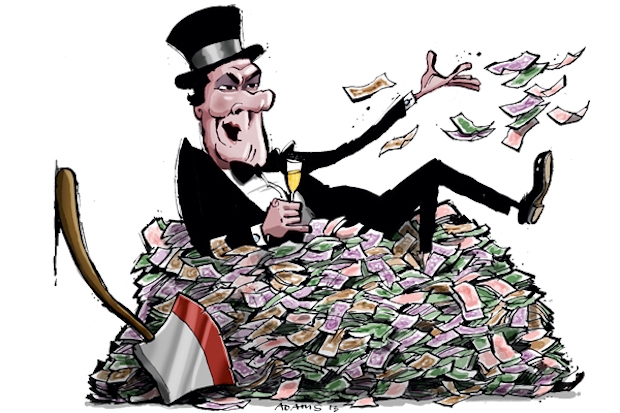Now that the economy is recovering and George Osborne has overtaken Ed Balls in the polls for having the best economic policies, he may be forgiven for wondering if wider rehabilitation is next. The Chancellor’s allies have long seen him as the man who will succeed David Cameron, perhaps in 2018, and imagine that his problem — looking too young — will remedy itself and that his personal popularity will recover along with the economy.
Today’s polls suggest this isn’t happening – at least, not yet. While the Chancellor’s professional reputation is recovering from the omnishambolic 2012 budget his personal reputation is still pretty low. In today’s Independent on Sunday, Osborne ranks last for whom people would like to have a meal with, join their pub quiz team or spend Christmas with, compared to the other party leaders:
On professional matters, the Chancellor ranks top for who you’d most like looking after your financial affairs — I’m sure he’s thankful for this. However, the public don’t seem keen for him to run the country:
The Chancellor is relaxed about this: he sees unpopularity as part of his job as government’s axe man and regards this as inevitable, even desirable (he was fond of saying before the election that he’d have failed if he wasn’t the most unpopular chancellor in history). Last year, he was booed in front of 80,000 people in the Olympic Stadium and appeared to take it with good humour.
But if the Chancellor thinks his improving economic fortunes puts him back in the running as a future leader of the Tory party, as James suggested during this year’s conference, he will eventually have to find some way of improving his image with the public. His frequent outings to mines, factories, kitchens and warehouses won’t cut it alone.
PS: In his biography of George Osborne, Janan Ganesh portrays Osborne as a hard-nosed sybarite who has pretty much given up on trying to be popular:
‘He is neither troubled by this – “I know I will never be a man of the people” he once told a colleague, as breezily as if he was giving the time of day – nor inclined to do very much about it. One friend suggests he takes a perverse, Mandelsonian delight in playing the pantomime villain. Certainly, unlike Brown, he will never embarrass himself with desperate pretences at ordinariness. There have been no compromises in his family life, with its upmarket holidays and expensive schools.
‘Osborne’s answer to his own unpopularity is strategic inconspicuousness. This makes immaculate sense for a Chancellor but is unthinkable for a Prime Minister and Osborne is thought to have designs on the ultimate office…he will have to hand in his cloak of invisibility and accept an unrelenting searching public gaze. Even some of those who are best-disposed towards him doubt both his ability and appetite to make the transition.’






Comments